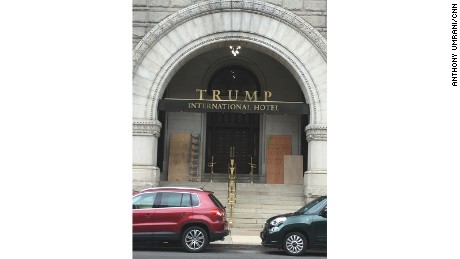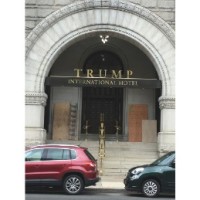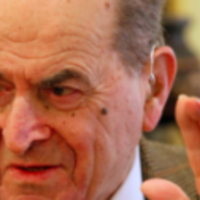The diverse millennial generation has seen too few answers from traditional leadership. Now, many of us are losing patience with the political system

Like any marketing-approved generational epithet, to be a millennial is not as simple as it sounds. If you read the news, you might be forgiven for thinking that were a mass of social-media-addicted gay biracial angels whod rather take a BuzzFeed quiz than think for ourselves were responsible for the death of the car industry, the cable industry, were lazy, were entrepreneurial, were overly nostalgic and were narcissistic. But however handy the descriptive term, the truth is that were a widely various crowd.
Just look at this election. Millennials are not lining up for Hillary Clinton, nor any candidate, for that matter. A recent Quinnipiac poll found that support for Hillary Clinton among voters ages 18-34 in a four-person race is a paltry 31%. Libertarian Gary Johnson finished second and secured 29%. For the olds of America, this is a scary prospect.
A recent New York Times op-ed by Charles M Blow claimed that young people voting for third-party candidates this election cycle, seen by many as a form of protest against the establishment options, is incredibly problematic and potentially self-destructive. While that might be true, his piece illustrates a disagreement on how democracy should be structured and how demographics work.
Im not going to chastise anyone for rejecting the false binary of American politics. Claiming that someone is wasting their vote is undemocratic, even if the outcome is undesirable. In fact, it should be heartening that young people are even aware enough to know that there are more than two political parties in this country. But I do wonder how we got to this point after the utopian high of the 2008 election, when Shepard Fairey posters were hanging on college dorm-room walls and will.i.am was releasing inspirational, triumphalist music videos.
Eight years later, whatever people wanted from Barack Obama they didnt quite get, and Clinton is struggling to claim her potential presidency as an extension of his legacy. Besides Clintons unique, complex issues with so-called likability, theres another reason millennials arent lining up to to buy Im With Her tote bags: traditional appeals to court our vote no longer work and were losing patience with the political system of this country.
I can still remember a time when youth brands felt the need to hawk dusty old concepts like civic responsibility and democracy. Take, for instance, this dire MTV Rock the Vote commercial starring Madonna and two anonymous back-up dancers. Marvel at Madges lackadaisical attempt to drum up a modicum of tepid patriotism. If you dont vote, youre going to get a spanking, she says while sporting nothing but a bit of red lingerie and an American flag.
In 2004, youth voting went up again, because of (or perhaps in spite of) Puff Daddys insipid Vote or Die campaign. Vote or Die didnt literally mean that you would die if you didnt vote, though there was certainly the implication that you might get drafted and sent to Iraq if you didnt support Democratic candidate John Kerry. Puff Daddy has since been on record saying he thinks voting is a scam. Hes not alone.
These days, youd be better off selling canned farts at a flea market than promoting the necessity of exercising the franchise in November. Despite its association with the grunge 90s or maybe because of it Rock the Vote still exists, even if the idea of rocking is about as relevant to the youth vote as a rotary phone. This year, Rock the Vote is joining forces with Glamour magazine, Refinery29, Jezebel and the Cut to register at least 100,000 women before the election, an initiative called #OurVoteCounts. As one would imagine with the strategic placement of the hashtag in the name, most of this registration drive will take place online, unlike the TV-centric campaigns of yesteryear. To better appeal to its newer, younger, sexier partners, Rock the Vote might want to also consider rebranding for the 21st century maybe something like Electric Democracy Carnival? Organizers can hold voter registration drives in the desert, hand out glow sticks and pacifiers, and build a giant wooden statue of Thomas Jefferson that they can set on fire every evening.
Still, its good to see Rock The Vote make the jump from the airwaves to the internet. Youth political mobilization is occurring online, through organizing methods that are either independent of any sort of official PAC or are merely social networks of like-minded individuals looking for a tightly sealed echo chamber. Donald Trump manages to stay in the news cycle some days purely by saying something hateful or stupid on Twitter posing with a taco bowl, blaming Hillary Clinton for any negative headline, and often outright lying. Hillary Clintons recent appearance on Between Two Ferns with Zach Galifianakis was a funny, though transparent, attempt to get the kids to be down with her.
The bogeyman of this election cycle is the alt-right, a movement that doesnt have a central figurehead though Donald Trump is its pet project of the moment and both implicitly and explicitly promotes its agenda but has frightened liberals enough that Hillary Clinton felt compelled to call the movement out in a stump speech.
While the alt-right isnt engaging in get-out-the-vote activities as of yet, supporters are making their voices heard through the favored persuasive tactics of my generation social media harassment and florid think pieces (many of which appear on the Breitbart News website). Whereas Rock the Vote sought to infuse music rebellion into politics, the alt-right seems to be hoping to inject politics into rebellion. When diversity and acceptance are buzzwords and mainstream pop culture is increasingly socially liberal, it stands to reason that anyone with a taste for anarchy and transgression would turn to the right.
But both sides of the millennial political divide have come to distrust their elders, even if the candidates of the ever-expanding fringe Johnson, Trump, Stein, Sanders are old enough to collect whats left of social security. There is an increasing awareness in this country that somethings gone wrong. Millennial dissatisfaction with the course that the United States is taking is growing. Earlier this year, the GenForward survey, a collaboration between the Black Youth Project and the Associated Press-NORC Center for Public Affairs Research at the University of Chicago, discovered that 52% of millennials feel the country is falling behind and another 24% believe its failing. That same study found that 17% of black millennials arent planning to vote, which could be a devastating blow for Hillary Clintons campaign, as shell be relying on the youth and minority vote to overcome Trumps significant advantage with white Americans.
The apathy of the millennial voter might simply be a symptom of having two candidates in their late 60s or early 70s who dont have the air of hipness that Barack Obama employed. What pops a hole in that theory is that millennial voting rates fell 7% from 2008 to 2012. Instead, theres the very real possibility that as millennials age, they are less apt to stomach a thing called hope. The Obama presidency did not usher in a new age of cooperation. Nancy Pelosi and John Boehner did not announce they would be going on a nationwide concert tour performing the hits of the Carpenters.
Racial tension, climate change, gun violence, terrorism, and poverty persist. Easy answers do not exist, and even if they did, they wouldnt be coming from one of the two major political parties groups often more concerned with their own survival than practical solutions to tangible issues. As the global situation appears to become more and more hopeless thanks to actual horrors, plus the media saturation that occurs after every tragedy, which amplifies our malaise it should come as no surprise that millennials as a group and the nation at large disagree on how to turn things around.
Consensus might just be a thing of the past; MTV is far from the unchallenged thought leader for American youth. What this election might be remembered for is the moment when the American political system became so ossified and incapable of solutions that we decided, at last, to junk it and start from scratch.
Read more: https://www.theguardian.com/us-news/2016/oct/02/millennial-voters-2016-election-apathy











